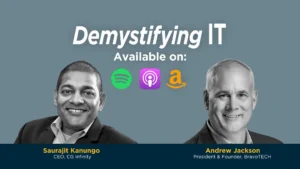What is the Future for edX as a 2U For-Profit?
MIT & Harvard University have officially passed ownership of their edX online learning platform to the public benefit company 2U.
Founded in 2012 in collaboration with MIT & Harvard, edX began as a non-profit organization with the mission of providing an open-source e-learning platform with both free and affordable online courses from accredited high-profile universities. Now as edX takes its next step in its journey, a level of uncertainty for the future of the platform accompanies its transition.
To further explore how the transition from a non-profit to a for-profit will impact the future of the platform, as well as some of today and tomorrows needs for online learners, Daniel Litwin, Voice of B2B, invited Beth Porter, former Vice President at edX & Pearson, and Co-founder of Esme Learning Solutions, to this episode of MarketScale TV.
The two discussed how edX’s experimental approach to building online learning infrastructure as well as coursework shaped strategies of success for the rest of the field.
“Education goes through these cycles of different kinds of innovation and new activity and they stay here for a while. Then something else prompts a whole new set of learning experiences to be developed and edX has been an important part of making that development have a leading-edge,”
Porter said.
However, as edX transitions its financial backend structure, the balance between a non-profits motive for innovation and a for-profits motive to stay afloat can create tension.
They also consider Porter’s recent research about engagement in online learning in respect to edX’s approach, as well as the future of AI in advancing their platform.
Follow us on social media for the latest updates in B2B!
Twitter – @MarketScale
Facebook – facebook.com/marketscale
LinkedIn – linkedin.com/company/marketscale







